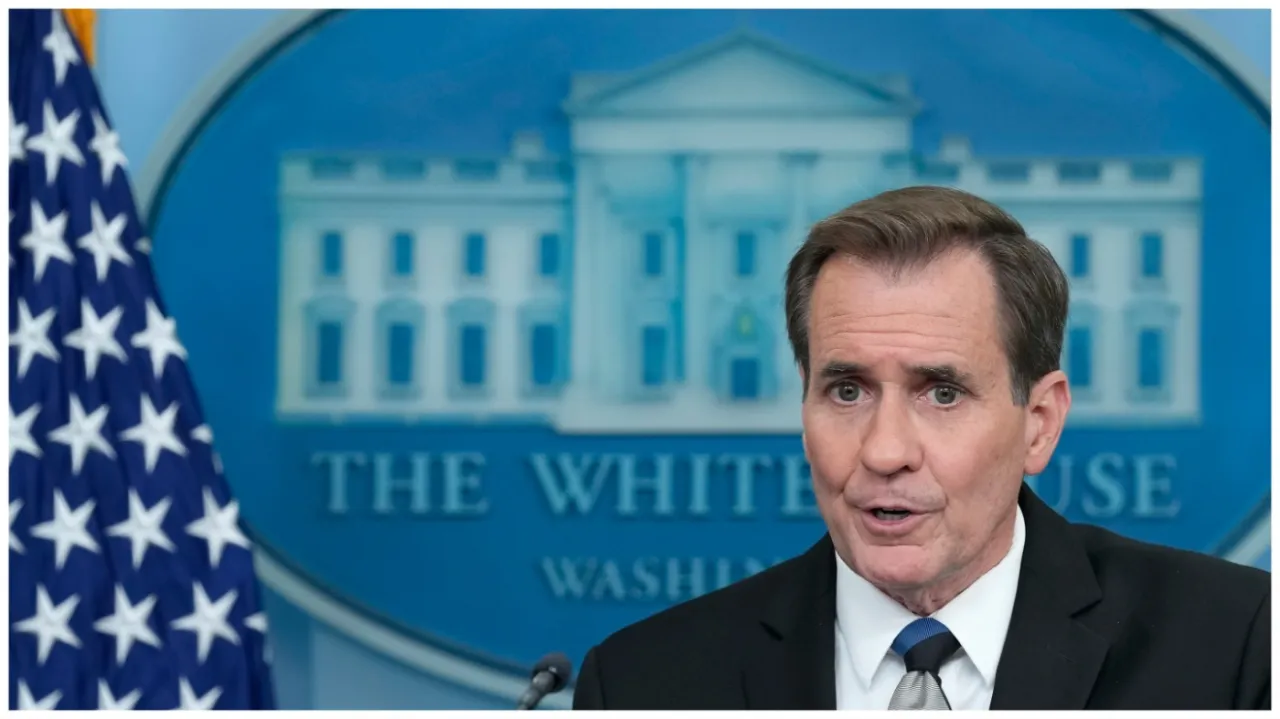White House National Security spokesman John Kirby on Thursday discussed the latest cease-fire negotiations between Lebanon and Israel as tensions escalate in the region.
He also acknowledged that there hasn’t been much progress towards achieving a cease-fire in Gaza in recent days and weeks.
ABC News’ Linsey Davis sat down with Kirby to discuss more about potential cease-fires.
ABC NEWS: We spoke with White House National Security spokesman John Kirby for more on the latest negotiations for a cease-fire between Lebanon and Israel and the situation in Gaza.
White House National Security spokesman John Kirby, thank you so much for speaking with us. Just today in New York, [Israeli] Prime Minister Netanyahu said the policy is clear. We continue to hit Hezbollah with all our might. We will not stop until we achieve our goals. The US is pushing a temporary cease-fire between Israel and Lebanon. Israel says right now that’s not an option. What’s the disconnect here?
KIRBY: Well, we’re talking to them about exactly how to see if we can’t move this forward. As you saw in multiple nations last night called for a 21-day cease-fire. And I want to stress a couple of things. It’s 21 days. It’s temporary. Nobody’s suggesting that Israel doesn’t have a right to defend itself against Hezbollah terrorists. Of course they do. I mean, the, Hezbollah just launched a ballistic missile at Tel Aviv just yesterday.
But we believe that if the goal was to get families back home up near that border, to restore their lives and livelihoods, the way to do that is through diplomacy, not through an all out war. And so we’re calling for a 21-day cease-fire. We wouldn’t have issued that statement last night if it didn’t come on the heels of what we believe were productive discussions with Israeli leaders at very high levels and those conversations with those Israeli leaders, this is my second point, are continuing today in New York City.
ABC NEWS: A senior U.S. official told ABC News, “Israel acts like they are the superpower, not the U.S. The pressure has done no good. They do whatever they want.” What’s your response to that?
KIRBY: I think comments like that are unhelpful and, quite frankly, not reflective of the deep and contextual relationship that we have with Israel. President Biden has been a staunch supporter of Israel in his entire public life, certainly as president of the United States, putting F-16s in with American pilots in the air to shoot Iranian missiles and drones down. I think we’ve proven to a fare-thee-well that that we mean it when we say we take our obligations to Israel and to their self-defense very, very seriously.
Now, look, they don’t agree on everything. Prime Minister Netanyahu and the president have known each other for going on 40 years. And but, you know, when it comes to a two-state solution, for instance, clearly, you know, we have a different view. But on the big thing, the thing that matters the most, that’s the safety and security of the Israeli people — both leaders believe strongly in that. And so that’s why it’s important to have these conversations and these discussions. And again, those are ongoing today.
ABC NEWS: With regard to the ongoing war in Gaza, what’s the latest on a cease-fire to get the hostages home, including Americans, and to stop the bloodshed of innocent civilians?
KIRBY: Man, Linsey, I wish I could tell you that, you know, we’re on the brink of a breakthrough here. We’re not. There hasn’t been a whole lot of progress in recent days and weeks on getting a cease-fire in Gaza forward that would allow for those hostages to get home.
And the principal obstacle to this progress is [Hamas leader Yahya] Sinwar himself. He’s sitting down there in a tunnel surrounded by hostages and unwilling to have any kind of meaningful negotiation and and move towards a cease-fire that would get those hostages home and get much needed, desperate need to, desperate humanitarian assistance to the people of Gaza. So we’re going to keep at it. The president directed the team to continue to work to see if there’s anything we can do to move this forward. And so we’re, we’re still trying to, to achieve that outcome.
ABC NEWS: Should Netanyahu be doing anything specifically to try to move this forward?
KIRBY: We are, as you might expect, very much having active conversations with the Israelis about, about trying to come up with a fresh approach here, a way to move it forward. It was an Israeli proposal that started this whole thing back in May that, that really formed the architecture of the, of the agreement. And the vast majority of that architecture was approved by both sides. It’s when you get down to the, the last 10% or so, when you’re really talking about implementing details, it, that it got very, very hard.
ABC NEWS: We spoke with the queen of Jordan [Rania Al Abdullah] earlier this week. And I just want to play you a little clip about what she had to say about America’s role in this conflict.
RANIA: Today, we are much closer to a regional war than we have been in the past year. And I think it is time for the global community to act.
You know, specifically the U.S., I think the, you know, expressions of concern or even calls for a cease-fire really are meaningless when, when you continue to provide arms that kill civilians. You know, the answer is never more arms. That only needs more violence and more escalation. And America’s support, the blanket support that’s provided for Israel, has exceeded any reasonable political calculus.
ABC NEWS: Your response on that? If Israel continues to press ahead on two fronts of this conflict, is there a point at which the U.S. needs to consider adding conditions to supporting Israel?
KIRBY: Well, I think, as I think we’ve shown, we have not been shy about expressing concerns to the Israelis about the manner in which some of their operations have been conducted back down when they were operating in Rafah. We did withhold a shipment of 2,000 pound bombs because the president was concerned that those kinds of bombs could not and should not be used in densely populated areas.
So we have been very firm with the Israelis, again, about the prosecution of these operations. We also know it’s important that Israel has the means to defend itself. And they’re up against, they’re in a tough neighborhood, and they’re up against enemies that are fully resource and funded by Iran. And so we’re also doing everything we can to try to make sure we’re holding Iran accountable for these destabilizing activities.
ABC NEWS: White House National Security spokesman John Kirby, we thank you so much for your time. We appreciate it.




